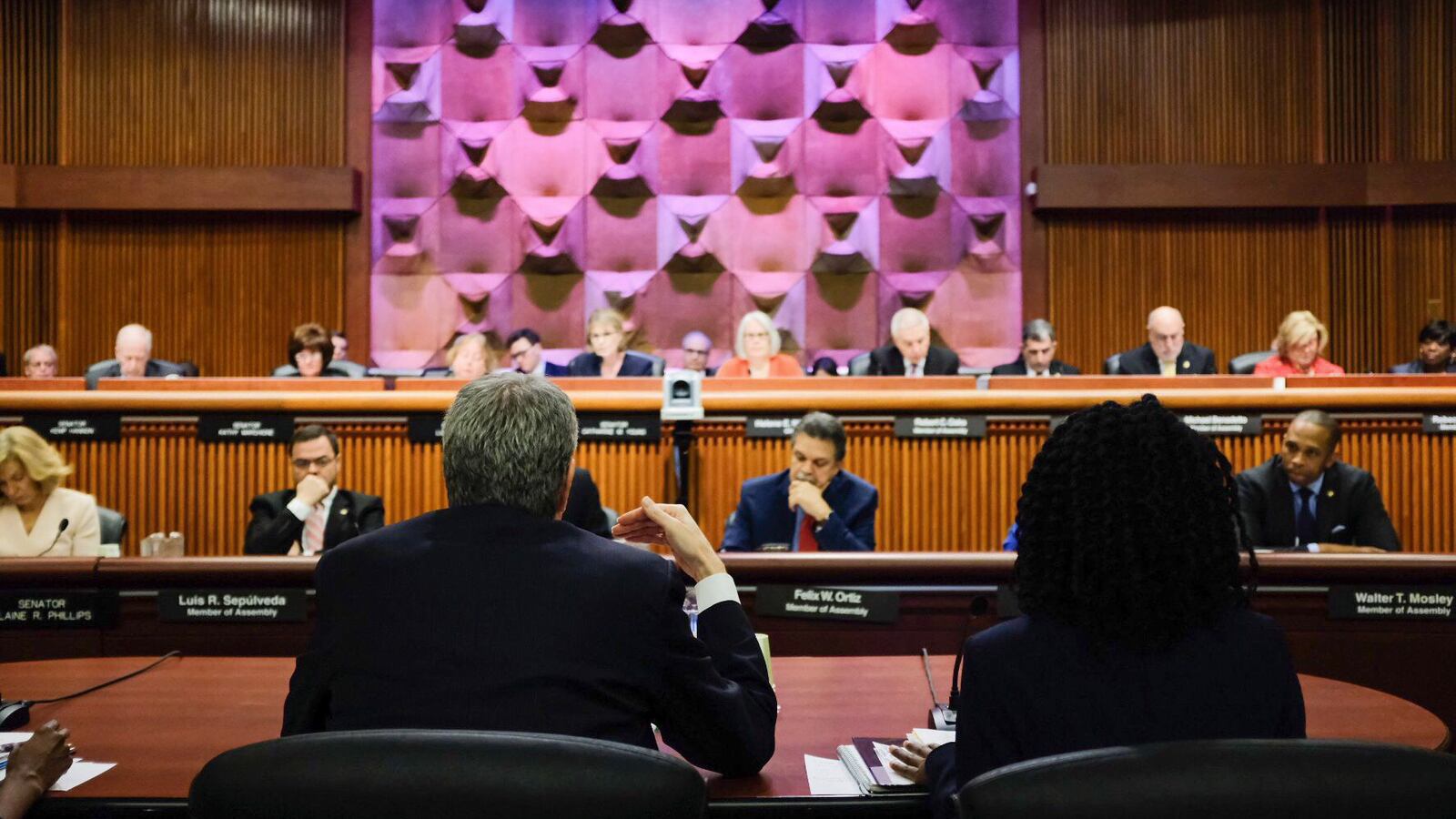Mayor Bill de Blasio intends to keep his search for the new schools chief under wraps, he said Monday, despite calls from some parents and advocates to let the public weigh in on the process.
“I don’t think it’s appropriate — in a personnel decision — to crowdsource it,” de Blasio said during a state budget hearing in Albany.
Current schools Chancellor Carmen Fariña, who announced in December that she plans to retire in the coming months, testified before lawmakers last week. On Monday, it was her boss’s turn.
During his three-hour testimony, he continued to push for more education funding than Gov. Andrew Cuomo proposed in the state budget plan for the coming year. But de Blasio also took some tough questions from lawmakers, who pressed him on how the city spends the money it’s given — and whether enough makes its way to the neediest schools.
“There are many high-needs school districts,” in New York City, said Sen. Catharine Young, a Republican from western New York. “So how much of the budget would you expect to go to those high-needs schools?”
Here are some highlights from Monday’s hearing.
A budget back-and-forth
De Blasio continued to blast the governor’s proposed education budget, saying it falls $200 million short of what city officials projected. City officials say that Cuomo’s budget cuts special education spending by $65 million, and forces the city to bear an extra $144 million for charter schools.
The governor’s office has said that special education funding reductions are actually smaller than the city’s projections, and state officials have highlighted a proposed 3 percent increase in school aid.
Either way, budget negotiations are just beginning: Cuomo and lawmakers must come to an agreement by April 1. Some legislators have already indicated that they will push for more school funding than Cuomo proposed — though it’s not clear how much more.
De Blasio also took aim Monday at the governor’s proposal to require state officials to approve some local school districts’ budgets, saying it could lead to “arbitrary decisions.”
“We ask that you do not tie up much-needed resources to our students through added layers of bureaucracy,” de Blasio said.
How to support struggling schools
De Blasio faced tough questions from Sen. Young about how the city funds its high-needs schools — echoing Cuomo, who said last month, “Right now we have no idea where the money is going.”
Citing a Chalkbeat article, Young questioned why less than 20 percent of the city’s $30.8 billion education budget last year was allocated through the its “Fair Student Funding” formula, which partly determines the amount of each school’s budget. The city adopted the formula in 2007 as a way to send more money to schools with the neediest students.
“Why doesn’t the city allocate more funding through that formula?” Young asked.
De Blasio responded that the city is obligated to spend some of the money on education-related expenses separate from school budgets, such as teacher pensions. But he also said his administration has invested heavily in programs — including the “Renewal” program for struggling schools and another that creates “community schools” by filling them with social services — that target high-needs schools, even if they don’t receive funding directly.
“The formula is one piece of how we address equity and improve our schools,” he said. “But there are other pieces as well. And we’ve made sure to give them substantial support.”


